John Wilson
Favorite Books of 2013
Plus the Book of the YearOur soundtrack this year is the Waterboys doing "Strange Boat." (That was the first song of the most memorable concert Wendy and I attended this year—with our dear friends Gary and Katy Gnidovic, at the Old Town School in Chicago.) "We're sailing in a strange boat / heading for a strange shore / We're sailing in a strange boat / heading for a strange shore / Carrying the strangest cargo / that was ever hauled aboard."
As I've said in years past, this list of favorite books—capped by the Book of the Year—is a deliberately unsystematic affair, following a routine that an old-fashioned Surrealist might approve of. These are some books that rose to the surface when I thought about a year of reading, propped up on pillows in bed next to Wendy late at night, not quite asleep but not awake in the usual sense (meaning blessedly not aware of all the competing concerns of the day). There are books I haven't had a chance to read yet stacked nearby, some of which might well be on this list if it were done a month from now, or next week—not to mention all the wonderful books that haven't even swum into my ken.
The titles are in alphabetical order, more or less (the logic of departures from that will be clear), followed by the Book of the Year. I'd love to hear from you about the books of 2013 that stand out in your own reading.
Today—December 20th—would have been my mom's 91st birthday. This list is dedicated to her.
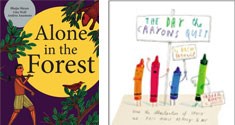
Alone in the Forest. Text by Gita Wolf and Andrea Anastasio. Illustrations by Bhajju Shyam. + The Day the Crayons Quit. Text by Drew Daywalt. Illustrations by Oliver Jeffers. The first of this pair comes from Tara Books, a publisher in India. Many of their books, like Alone in the Forest, are a feast for the eye. The story is simple but not saccharine. I can't wait to read it with our grandkids. And The Day the Crayons Quit combines visual brilliance with delightful wit: Wendy and I have already given several copies of it as gifts.
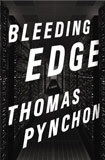
Bleeding Edge. Thomas Pynchon. The best reading I've seen of this book is by Alan Jacobs. Many people, of course, are simply allergic to Pynchon, while others who greatly admire some of his earlier books have dismissed Bleeding Edge and its predecessor, Inherent Vice, as Pynchon Lite. (Alan's piece is particularly helpful in illuminating the ways in which those two novels are connected.) That puzzles me, but life is full of mysteries and perplexities.
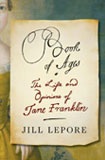
Book of Ages: The Life & Opinions of Jane Franklin. Jill Lepore. "Benjamin Franklin's sister Jane thought of her brother as her 'Second Self.' He was the youngest of ten sons. She was the youngest of seven daughters. Benny and Jenny, they were called when they little. No two people in their family were more alike." Those are the first sentences of this splendid book. Lepore continues: "Their lives could hardly have been more different. He ran away from home when he was seventeen. She never left. He taught himself to write with wit and force and style; she never learned how to spell. " Book of Ages is a masterpiece of patient scholarship, bold invention, and wise human sympathy. I suspect that over the years it will prompt at least a few readers to become historians themselves, because they want to write a book as rich and deep as this one Jill Lepore has given us.
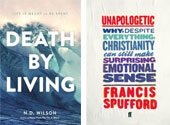
Death by Living. N. D. Wilson. + Unapologetic. Francis Spufford. Two very different books, each offering in its own distinctive way a winsome account of our common life as seen Christianly. Here is a review I did of Death by Living for Books & Culture. And this is Alan Jacobs' review of Unapologetic for B&C. And finally, a fine review of Unapologetic for CT by Wesley Hill.
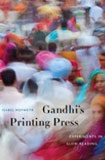
Gandhi's Printing Press: Experiments in Slow Reading. Isabel Hofmeyr. I have no power to convene conferences, but I've wished (on Twitter and elsewhere) that some enlightened souls who have such authority would put together an international conference devoted to Isabel Hofmeyr's remarkable book. And as C. Christopher Smith noted in his B&C review, there are lessons for the church in this story.
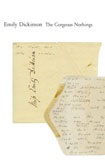
The Gorgeous Nothings: The Envelope Poems of Emily Dickinson. Edited by Jen Bervin and Marta Werner. Ever since I started keeping this annual list, I have done it on the back of envelopes. Usually two envelopes are required: one for the first draft, and one for the final list, which often includes a couple of scrawled changes. (This year's final list was done on the back of an unopened envelope from that excellent magazine The Economist.) Given that history, how could I resist a volume ("gorgeous," yes, though it's a melancholy book too) with facsimiles of Dickinson's "envelope poems," accompanied by critical essays and prefaced by Susan Howe?
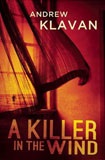
A Killer in the Wind. Andrew Klavan. Here's an excerpt from my B&C review: A Killer in the Wind is "dark, violent, seasoned with wit and fueled by anger. (What kind of anger? Read the Psalms.) Like many of Klavan's earlier books, it explores the consequences of evading unpleasant realities (not least, the communal evasion that permits a lot of people to pretend that they don't know what's going on: That's awful! We had no idea!) … . And like a number of Klavan's earlier books, A Killer in the Wind deals in the uncanny. (Klavan's faithful readers will be reminded especially of his early novel The Scarred Man, published under the pseudonym Keith Peterson.) You see something that seems impossible. What do you do? Tell yourself you didn't see it? Make an appointment with a psychiatrist? Or do you say, all right, that happened, even though I can't explain it. What does it tell me? What does it mean?"
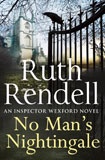
No Man's Nightingale. Ruth Rendell. I had never read Ruth Rendell, despite the acclaim she's received. But for some reason, I was drawn immediately into an e-galley of this novel, the latest installment in her Wexford series. It prompted me to go back and read all the books in the series, starting with Rendell's first novel, From Doon with Death, published in 1964. Then I read all the standalone novels published under her own name. Finally I started one of the novels she wrote as "Barbara Vine," at which point I bogged down. (I may come back someday to the Barbara Vine books and the several volumes of short stories; I may not.) How many writers can sustain a reader's rapt attention over the course of more than 50 novels written in a span of 50 years but devoured in roughly three months? No Man's Nightingale is far from being her best book, and in some respects it irritated me, but I feel a special affection for it anyway, since it brought me into her world. If you have never read Rendell, try the standalone novel The Lake of Darkness, which is (so I think) one of her best and which gives a sense of her distinctive qualities.
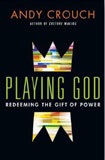
Playing God: Redeeming the Gift of Power. Andy Crouch. If this book hadn't been by Andy Crouch, I wouldn't have read it. A book on power? No thanks. But a book on power by Andy Crouch? Yes, I'll give it a try, maybe a bit reluctantly. Glad I did. (So much so that I started over immediately and read it a second time.) Here's a video conversation in which Andy and I talk about the book. And here's Tyler Wigg-Stevenson's review of Playing God for B&C.

The Poetry of Victorian Scientists: Style, Science and Nonsense. Daniel Brown. I wish some of my friends at Wheaton College would schedule an interdisciplinary seminar on this book—and allow me to sit in. For a taste of its delights, here is the very last paragraph (which quotes the great physicist James Clerk Maxwell, who was also a devout Christian; Maxwell plays a prominent role in Brown's narrative): "Supremely disdainful of the canons of causality, the deterministic enslavement that materialism wishes to subject them to, Maxwell's molecules are, 'like the planets,' akin to Venus and the atoms that Lucretius models, and indeed the figure of the scientist as a child blowing bubbles: 'They must therefore," he concludes, 'enjoy a perpetuity of the highest and most unmixed pleasure.' With his entropic signature and metaphysical wit, Maxwell both celebrates and satirises the free play enshrined in nonsense, by which Victorian science discovers and amuses itself."
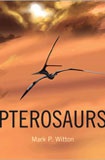
Pterosaurs: Natural History, Evolution, Anatomy. Mark P. Witton. I wrote about this in my Bookmarks column for CT: "Speaking of evolution, I've been smitten with pterosaurs ever since my younger brother and I saw (and heard) ads on TV, around 1957, for the movie Rodan. And then there was Arthur Conan Doyle's novel The Lost World. If you share a more-than-casual fascination with what Mark Witton describes as 'the diversity and sheer awesomeness of everyone's favorite leathery winged reptile,' I have the book for you. Beautifully laid out, clearly written, loaded with handsome illustrations, Witton's book invites you to dip in for delicious tidbits or hunker down for the equivalent of a superb lecture series."
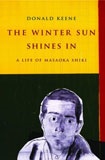
The Winter Sun Shines In: A Life of Masaoka Shiki. Donald Keene. One of my favorite poets, illumined by the great critic Donald Keene. Decades ago, Keene was one of my first guides to Japanese lit (as he has been for so many). Amazingly, all these years later, he is still offering instruction and delight, for which I am grateful. Masaoka Shiki (1867-1902) lived during the first period of Japan's encounter with modernity, and his work is at once intimately personal and a response to that immense change.
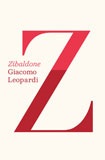
Zibaldone. Giacomo Leopardi. Edited by Michael Caesar and Franco D'Intino. Translated from the Italian by Kathleen Baldwin. Are you easily seduced by "notebooks" and miscellanies of all sorts? Are you irresistibly drawn to fantastic and eccentric learning, to vast works (fictional or non-) in which a brilliant, often solitary mind ranges from literature to philosophy, from history to art, while delving into the curious byways of philology? Then Zibaldone (a "hodgepodge," the title tells us—in this case, a massive hodgepodge) belongs at your bedside. Leopardi is best-known for his poetry, but now at last we have an English translation of this fabled work. Heartfelt gratitude to FSG and to everyone who helped to bring this project to fruition.
BOOK OF THE YEAR
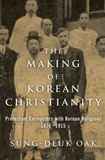
The Making of Korean Christianity: Protestant Encounters with Korean Religions, 1876-1915. Sung-Deuk Oak. "Historiography of early encounters between Protestantism and Korean religious culture should be rewritten from the perspective of cultural exchanges beyond cultural imperialism." Oak has given us a model for doing just that, not only for the Korean case in particular—his immediate subject—and not only for the phenomenal growth of Christianity in Asia more generally and in Africa over the last 150 years but also for church history over 2000 years, where we find—again and again, in wildly different circumstances—the "creative combination of the principle of Christian universality (vertical transcendence) and that of inculturation (horizontal adaptation)."
John Wilson is the editor of Books & Culture.
Copyright © 2013 Books & Culture. Click for reprint information.








Displaying 0–0 of 0 comments.
Displaying 0–0 of 0 comments.
*